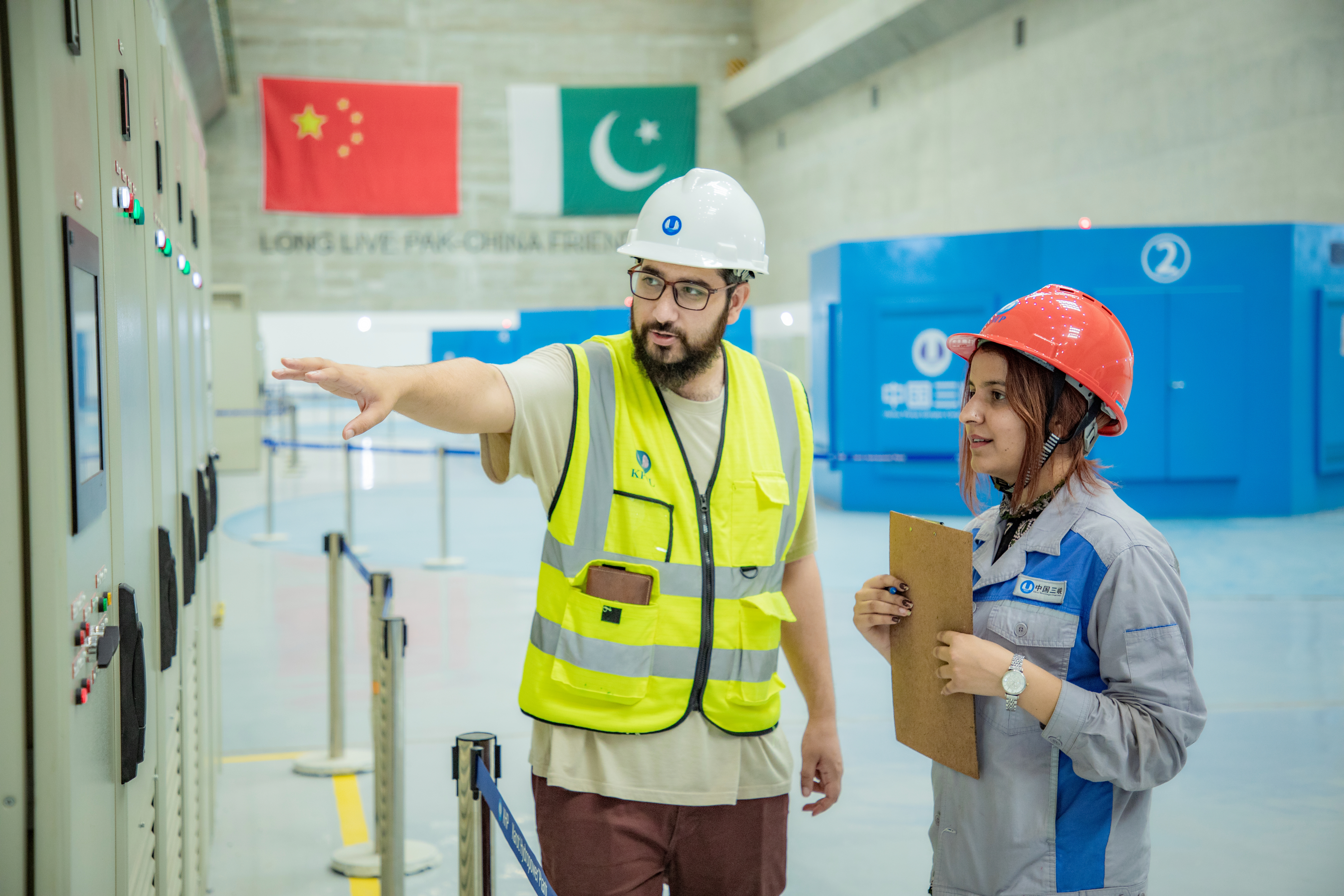
Moaaz Awan works with his team member at the site of Karot Hydropower Plant.?(PHOTO: COURTESY PHOTO)
By?YIN?Wei
Moaaz Awan's family has a long connection with China. Both his grandfather and his father studied and worked in China, and the young man from Pakistan is following in their footsteps, currently doing his PhD at Tianjin University (TJU). "When I was young, I lived in China with my father for a while, so I have strong feelings for China," he said. After completing high school, Awan chose to study in China.
He has developed several personal ties with China. He worked as a senior public relations manager at the Karot Hydropower Plant in Pakistan's eastern province Punjab, a major green energy venture under the Belt and Road Initiative (BRI). This personal link to the BRI made Awan look forward to the third Belt and Road Forum for International Cooperation held in Beijing on Oct.17-18. "The forum definitely promotes high-quality development of the BRI," he said.
Awan's other link is his appearance in the Pakistan episode of The Call of the Silk Road, a TV documentary by China Global Television Network, where he spoke about his involvement in the construction and development of the China-Pakistan Economic Corridor (CPEC), the BRI's flagship project in Pakistan. In the documentary, he spoke about the benefits of the hydropower project: "Pakistan benefits [from] the abundant 720 MW of clean and green energy, making the vision of BRI a tangible reality."
He also spoke of Chinese President Xi Jinping first proposing the concept of a modern Silk Road Economic Belt, during his visit to the Nazarbayev University in Kazakhstan in 2013, calling on young people worldwide to join hands in building a community with a shared future for all. "I was immediately attracted to this concept and made up my mind to participate in this cause," Awan said.
After completing his undergraduate studies, Awan pursued his master's and doctorate at the School of Civil Engineering at TJU, focusing on the sustainable development of infrastructures in countries along the BRI, especially the CPEC.
Asked about the impact of the CPEC on Pakistan, Awan said, "The infrastructure projects of CPEC have improved Pakistan's transportation system. The construction of the Karot Hydropower Plant alleviated Pakistan's power shortage, which has had a profound impact on Pakistan's economic landscape."
When he was working for the Karot Hydropower Plant, Awan and his team were mainly responsible for implementing corporate social responsibility projects in the surrounding areas. "We helped build schools, hospitals and parks, [launched] clean water systems for drinking and vocational training for residents, and repaired roads to improve transportation. Those are all tangible achievements of China-Pakistan cooperation. In a word, we all benefit from the BRI."
Awan is also telling China's stories to the outside world. He uses various domestic and international media platforms to tell the stories of the Communist Party of China (CPC) and China's development from the perspective of a foreign student. During the 20th CPC National Congress last year, he co-authored a front-page article in Pakistan's national newspaper The Nation, titled "The 20th National Congress Resonates Across the Himalayas."
At TJU, Awan is further delving into how the CPEC can play a long-term role in the development of Pakistan and the western region of China.
"The CPEC is a comprehensive development system that involves in-depth cooperation in various fields such as infrastructure construction, economic cooperation, trade, and personnel exchanges. Through in-depth research and exploration, I hope to provide valuable insights and suggestions for [its] sustainable development, thus laying a solid foundation for long-term cooperation between the two countries," he said.
The author is a staff working at the Publicity Department of TJU.
The trio will conduct a series of experiments in fields such as life science, fluid physics, combustion science and materials science. Notably, this is the first time that fruit flies have been taken on a Chinese space mission as experimental subjects. What made scientists choose fruit flies? What experiment will they undergo?
